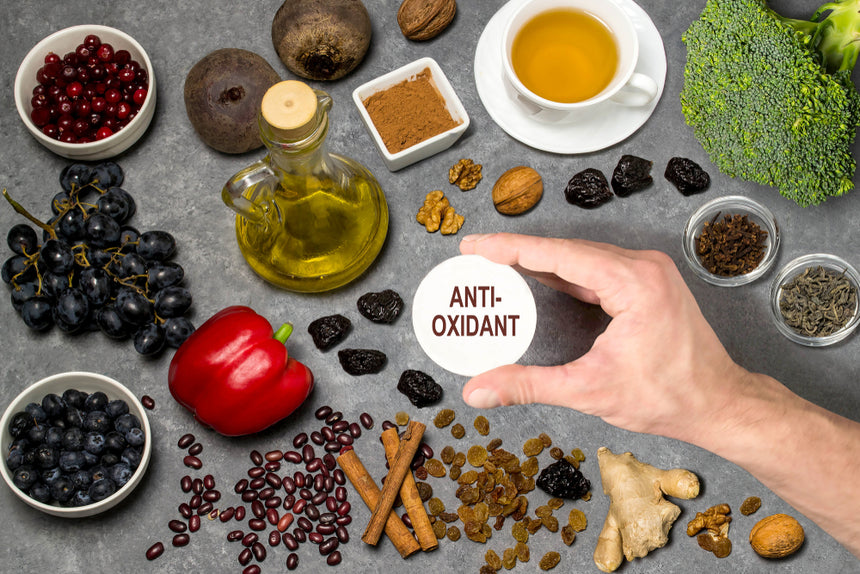What Are Antioxidants?
You can’t go far into the health and wellness world without coming across the term “antioxidant.” Heck, you don’t even need to get into wellness to hear the word—how many of you have a glass (or two) of red wine “for the antioxidants?”
Obviously, antioxidants are good for you, but do you know what they are and how they work? If the answer is “no,” then you need to read on!
Here’s what you need to know about the science of antioxidants:
Antioxidants, The Basics
Every day, your body is exposed to stress. This stress comes from pretty much everything—inhaling air pollution, getting too much sun, eating too much refined sugar and carbohydrates, even exercise.
In response to this stress, your body creates what are known as “free radicals.” Free radicals form when oxygen molecules break into atoms. These atoms lack electrons, which make them chemically unstable.
As unstable atoms, free radicals roam around trying to find other atoms to bond with so they can share their electrons and achieve balance. (Sounds like they need yoga.) Attaching themselves to other atoms can cause damage to them.
A small amount of free radicals in the body isn’t necessarily a bad thing. Your body functions best when there’s a balance of free radicals and antioxidants. However, a build-up of these free radicals is called “oxidative stress.”
When you’re exposed to large amounts of oxidative stress over long periods of time, you may be more at risk for health problems, such as chronic inflammation, heart disease, even stroke.
To combat these free radicals, your body has a defense system: antioxidants. Antioxidants work by providing electrons to these unstable molecules, thereby neutralizing them and making them no longer damaging. It’s a pretty neat little process that helps keep your body strong and healthy.
Although the body can produce antioxidants, you also need to get antioxidants from your diet. Berries, spinach, and kale are particularly high in antioxidants. Vitamins A, C, and E, as well as selenium, lutein, beta-carotene, and lycopene are all antioxidants.
Important antioxidants such as flavonoids and polyphenols are only found in plant-based foods. Each type of antioxidant plays a unique role, so it’s important you eat a varied diet rich in fruits and vegetables.
Too Much Is Too Much
Moderation is the best way to combat free radical damage in your body. Americans tend to eat diets that aren’t balanced and don’t include all the necessary nutrients to maintain a healthy, well-functioning body that resists illness.
Moreover, habits such as drinking alcohol, smoking cigarettes, sunbathing, eating too much refined sugar or polyunsaturated fats, even prolonged bouts of exercise can cause oxidative stress.
Doing anything to excess is bad for you. The best advice? Eat better and choose healthy habits. If you do choose to partake in activities that could be damaging to your body, do them with your health and longevity in mind. Don’t turn an occasional treat into a habitual need.
If you’re living a healthy life, you won’t have to spend much time worrying about oxidative stress, free radicals, or antioxidants.
